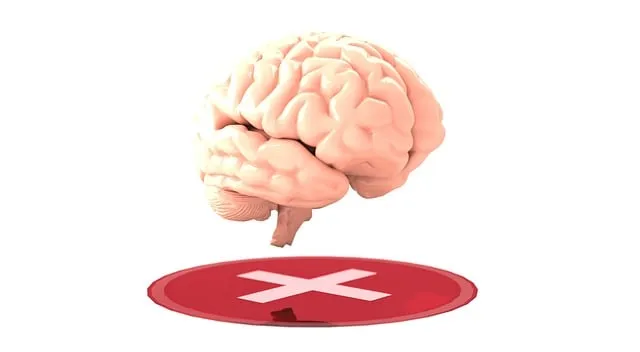The Lafayette Kaiser Permanente Mental Health Access Center leads the fight against substance abuse through comprehensive risk assessments, evidence-based interventions, and building resilience. They educate the public about the dangers of abuse, integrating conflict resolution techniques into prevention strategies. With a focus on mental health literacy, early intervention, and personalized care, the center offers specialized services that address both addiction and underlying mental health issues. By combining medical expertise with cultural sensitivity, they create an accessible and inclusive environment for recovery.
Substance abuse poses significant risks, impacting both individuals and communities. This article explores comprehensive risk reduction strategies, focusing on evidence-based approaches for prevention and treatment. We delve into the crucial role of institutions like the Lafayette Kaiser Permanente Mental Health Access Center in providing specialized care and individualized support. By examining comprehensive risk assessment, evidence-based interventions, building resilience, and fostering long-term support systems, we aim to equip readers with insights into mitigating substance abuse’s detrimental effects.
- Understanding Substance Abuse and Its Risks
- The Role of Lafayette Kaiser Permanente Mental Health Access Center
- Comprehensive Risk Assessment and Individualized Strategies
- Evidence-Based Interventions for Prevention and Treatment
- Building Resilience and Long-Term Support Systems
Understanding Substance Abuse and Its Risks

Substance abuse is a complex issue that involves the harmful use of drugs or alcohol, leading to significant impairment in an individual’s life. It encompasses a range of behaviors, from casual experimentation to severe addiction, with potential consequences impacting physical and mental health, relationships, and overall well-being. Recognizing the risks associated with substance abuse is the first step towards prevention and treatment.
The Lafayette Kaiser Permanente Mental Health Access Center emphasizes that understanding these risks is crucial. Substance abuse can lead to a cascade of negative outcomes, including cognitive impairments, addiction, and increased vulnerability to mental health disorders. By raising public awareness through campaigns and initiatives like Mental Health Policy Analysis and Advocacy, the center aims to educate communities about the dangers. Additionally, promoting conflict resolution techniques as part of prevention strategies can help individuals navigate challenging situations without resorting to substance abuse as an escape mechanism.
The Role of Lafayette Kaiser Permanente Mental Health Access Center

The Lafayette Kaiser Permanente Mental Health Access Center plays a pivotal role in mitigating risks associated with substance abuse within the community. This specialized center offers comprehensive services tailored to address the unique challenges faced by individuals struggling with addiction, focusing on both mental health and substance use disorders. By integrating evidence-based treatments with a patient-centric approach, it provides a safe space for recovery.
One of its key strengths lies in combining medical expertise with cultural sensitivity in mental healthcare practice. Recognizing that mental health issues often intersect with socio-cultural factors, the center adapts its interventions to respect diverse backgrounds and beliefs. This inclusive strategy not only enhances accessibility but also significantly contributes to depression prevention by creating a supportive environment where individuals feel understood and empowered to seek help. Moreover, through ongoing awareness campaigns and educational initiatives, Lafayette Kaiser Permanente Mental Health Access Center fosters mental health awareness, breaking down stigma and promoting early intervention for at-risk individuals.
Comprehensive Risk Assessment and Individualized Strategies

Comprehensive Risk assessments are a cornerstone in identifying and mitigating potential substance abuse issues. This process involves a thorough evaluation of an individual’s mental health history, family background, social environment, and personal risk factors. By understanding these aspects, healthcare professionals at Lafayette Kaiser Permanente Mental Health Access Center can tailor interventions to specific needs. An individualized strategy acknowledges that each patient’s journey is unique, and addressing their distinct challenges fosters better outcomes.
This personalized approach incorporates Empathy Building Strategies, enhancing the therapeutic alliance and encouraging open communication. Cultural Sensitivity in Mental Healthcare Practice is also integral, ensuring care aligns with the patient’s values and beliefs. Additionally, boosting confidence through supportive measures empowers individuals to actively participate in their recovery, creating a sense of agency and self-efficacy.
Evidence-Based Interventions for Prevention and Treatment

Evidence-based interventions play a pivotal role in preventing and treating substance abuse, offering hope and effective solutions to individuals seeking recovery. These strategies are backed by extensive research, ensuring their reliability and potential for positive outcomes. One such notable center championing these methods is the Lafayette Kaiser Permanente Mental Health Access Center.
By focusing on evidence-based practices, the center provides comprehensive care that addresses the root causes of substance abuse. This includes incorporating self-care routine development for better mental health, as well as mood management techniques within their treatment plans. Through such initiatives, individuals can learn and implement self-care practices to enhance overall well-being, thereby reducing the risk of substance abuse relapses.
Building Resilience and Long-Term Support Systems

Building resilience is a cornerstone of any successful risk reduction strategy for substance abuse. Encouraging individuals to cultivate coping mechanisms that foster self-esteem improvement and emotional stability can significantly reduce vulnerability to addiction. Lafayette Kaiser Permanente mental health access center offers specialized programs tailored to enhance these aspects, providing a robust foundation against future challenges. By integrating evidence-based practices such as Social Skills Training, centers like this empower individuals with the tools necessary to navigate stress and difficult emotions healthily.
The long-term support systems that follow from such initiatives are equally crucial. Connecting individuals with supportive communities, whether through therapy groups or community outreach programs, creates a safety net that promotes recovery and prevents relapse. This holistic approach not only addresses the immediate needs of those struggling with substance abuse but also builds a resilient network dedicated to depression prevention and overall mental well-being.
Substance abuse poses significant risks, but with comprehensive strategies like those offered by the Lafayette Kaiser Permanente Mental Health Access Center, individuals can navigate these challenges effectively. By combining risk assessments, evidence-based interventions, and long-term support systems, we can significantly reduce harm and foster positive outcomes for those struggling with substance abuse. The Lafayette Kaiser Permanente mental health access center plays a crucial role in providing tailored strategies, ensuring that each individual receives the care they need to overcome addiction and build resilience.






